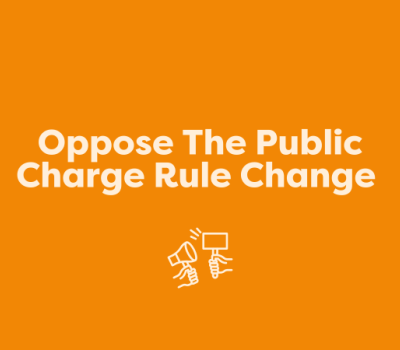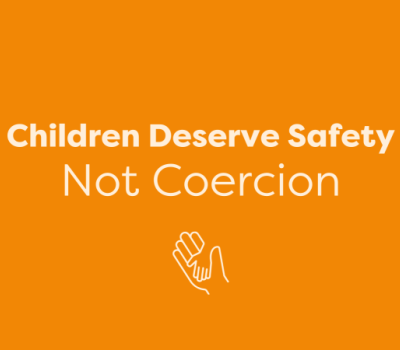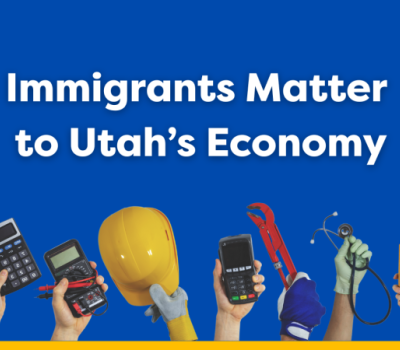Every year, thousands of children make the perilous journey to the United States alone, seeking safety and refuge. These children, known as unaccompanied minors, arrive at our borders without a parent or legal guardian. Many are fleeing violence, gang recruitment, human trafficking, and extreme poverty in countries like Honduras, El Salvador, and Guatemala. Others are escaping abusive family environments or persecution. Despite their youth, they risk their lives in hopes of finding safety and stability in a new country.
In Utah, 484 unaccompanied minors were released to sponsors—typically family members or trusted adults—between October 2023 and June 2024, according to the latest data from the U.S. Department of Health and Human Services. These children are waiting for their cases to proceed in immigration court, but their path to safety is now jeopardized by the lack of legal representation.
What Happens When Children Enter Immigration Proceedings?
When unaccompanied minors are apprehended by immigration authorities, they are placed in federal custody under the Office of Refugee Resettlement (ORR). They stay in shelters or detention facilities while ORR searches for a sponsor, typically a family member or trusted adult in the U.S. Some children are released within weeks, while others may wait months — or remain in custody until age 18 if no sponsor is found. During this time, they endure confinement, uncertainty, and the trauma of their journey.
Unlike in criminal court, there’s no guaranteed right to a government-appointed attorney in immigration court, even for children. Most unaccompanied minors can only have legal representation if they or their families can pay for it — which is rare. To address this, the federal Unaccompanied Children Program has historically funded legal services to help children navigate complex legal cases, overcome language and cultural barriers, and ensure they have a trusted adult to protect their rights and dignity in court.
Now, the Trump administration has abruptly slashed funding for legal services for unaccompanied children, effectively terminating support for 26,000 kids in immigration court.
What Happens When These Children Have No Legal Defense?
Immigration law is one of the most complicated areas of U.S. law, and yet even toddlers—as young as two or three years old—have been expected to appear in court without an attorney, facing trained government prosecutors alone. Unlike criminal court, where defendants are assured representation if they cannot afford an attorney, immigration court does not provide the same guarantee. This puts unaccompanied minors at a severe disadvantage, as they face a complicated system that even adults struggle to comprehend.
Without legal representation:
- Children are overwhelmingly deported back to danger: Studies show that children with attorneys are five times more likely to be granted protection in the U.S. than those without.
- Children must navigate a complex, unforgiving system: Immigration laws involve pages of legal statutes, multiple pathways to relief, and strict deadlines that even adults struggle to understand.
- Even eligible children lose their cases: Many unaccompanied minors qualify for asylum, Special Immigrant Juvenile Status (SIJS), or visas for victims of crime—but without an attorney, they have no way of applying for protection.
- More children end up in detention: Without a lawyer to advocate for them, children are more likely to be held in harmful detention centers, where conditions are often traumatic and isolating.
Denying children the right to legal counsel is not only harmful — it undermines the basic principles of fairness and due process. While U.S. law does not currently guarantee government-funded attorneys in civil immigration cases, expecting children to represent themselves in complex, high-stakes proceedings is fundamentally unjust. Children, especially those facing language barriers, trauma, and unfamiliar legal systems, cannot meaningfully advocate for themselves in a courtroom setting. Without legal defense, these minors are far more likely to be deported back to dangerous conditions, placing them at further risk of harm and stripping them of the protections our legal system should afford to the most vulnerable.
The Trump Administration’s Attack on Legal Services for Unaccompanied Minors
The Trump administration’s slashed funding for legal services for unaccompanied children is devastating. The consequences of this decision cannot be overstated: thousands of vulnerable children—some too young to read or write—will be forced to represent themselves alone before an immigration judge. This decision is a blatant violation of humanitarian principles, as it actively puts children in harm’s way, leaving them defenseless against deportation to violence and instability.
Without legal representation, many will be sent back to the violence and instability they fled. With the administration ramping up deportations and detentions of children, legal aid is more critical than ever. Several nonprofit groups across the country are now fighting back and filing lawsuits to restore the funding for legal representation after the Trump administration abruptly canceled the contracts. On Wednesday, March 26, a federal lawsuit was filed against the U.S. Department of Health and Human Services to restore funding for legal representation.
Why Utahns Must Take a Stand
- It’s a cruel and absurd double standard: The government pays for a judge and trained government attorney to argue for a child’s deportation but refuses to provide a lawyer to defend that child.
- No other courtroom would accept this: In what other system would we allow a child to stand alone, without legal representation, when their future is at stake?
- It strips away fairness and due process: Cutting legal defense for unaccompanied minors ensures thousands of children will be deported without a fair chance to make their case.
- Public opinion is clear: Polls show a majority of Americans believe unaccompanied minors should have legal representation — no child should be forced to navigate this system alone.
- It violates moral responsibility: This reckless decision abandons our duty to protect vulnerable children and weakens our national values of fairness, compassion, and justice.
- It contradicts Utah’s family-centered values: Utah has long championed families, justice, and humane immigration policy, as reflected in the Utah Compact on Immigration. Allowing children to face court alone betrays that commitment.
- This is about human decency, not politics: Every child deserves the opportunity to seek safety and a better future — and ensuring legal defense for these kids is the least we can do.
Stay Informed and Ready to Act
Thanks to public pressure and legal action, a federal judge recently ordered the restoration of funds for legal representation for unaccompanied minors. This is a huge victory, but the fight isn’t over. Despite the court order, the Trump administration has refused to comply, leaving vulnerable children to face immigration court alone. This makes it even more urgent that we stay alert and continue advocating for lasting protections.
One important step is supporting legislative solutions. Senator Mazie Hirono has introduced the Fair Day in Court for Kids Act, which would guarantee unaccompanied children the legal representation they desperately need while navigating complex immigration court cases. You can urge your elected officials to support this bill by visiting tinyurl.com/protect-kids.
Let’s stay informed, speak up when needed, and make sure Utah’s values of fairness, family, and compassion remain strong — for every child. Because legal defense for kids should not be optional.












